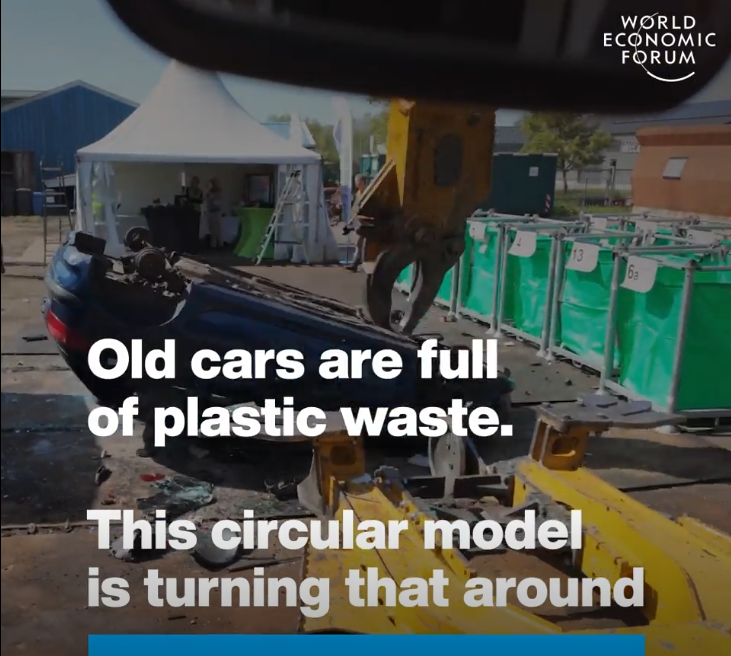Projects in progress
The following outlines some of the current prioritized projects we are advancing within multi-stakeholder working groups.
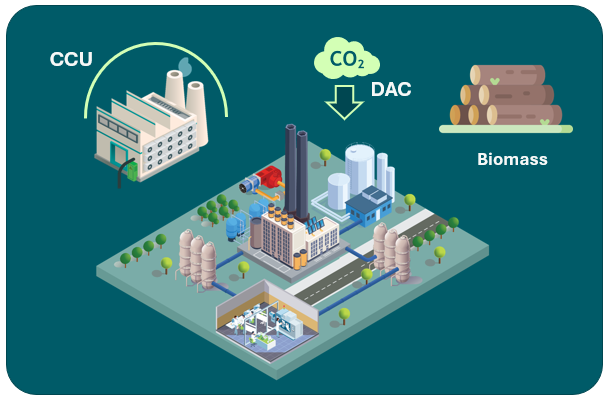
Sustainable Methanol
Assessing the supply-demand balance for sustainable methanol and identifying the best sourcing for a steady supply at competitive cost, utilizing either CCU, DAC or biomass-based technologies.
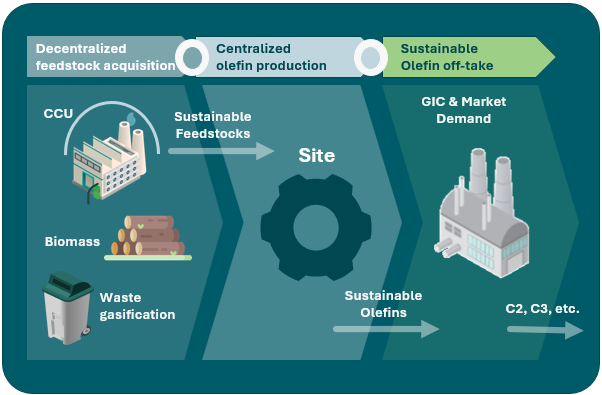
Sustainable Olefins
Exploring the development of an economically viable route to sustainable olefins secured by committed offtake agreements and based on sustainable feedstocks.
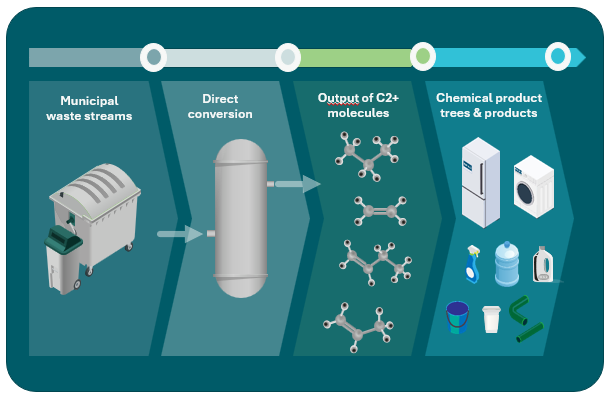
Direct Conversion
Setting up a joint R&D effort to explore commercial C2+ gasification by expanding process routes to convert complex municipal waste streams to C2+ monomers or liquids for further use.
Successful projects launched
With several years of experience from our previous life as the Low Carbon Emitting Technologies platform under the World Economic Forum, we already have successfully developed and spun-off several high-impact projects. These projects are proof of the power of collaboration to drive down carbon emissions and advance towards a circular economy.
Automotive Plastics Circularity
The Global Impact Coalition has launched the Automotive Plastics Circularity pilot together with eight global leaders in the chemical and recycling industries—BASF, Covestro, LG Chem, LyondellBasell, Mitsubishi Chemical Group, SABIC, SUEZ, and Syensqo. This groundbreaking pilot will address the critical challenge of recycling plastics from End-of-Life Vehicles (ELVs) by optimizing the dismantling, shredding and sorting processes, gaining access to specific polymer feedstocks for the chemical industry to increase recycling.
The R&D Hub for Plastic Waste Processing
The R&D Hub works to develop new technologies (with low TRL) for plastic waste processing with a lower carbon footprint and greater levels of polymer recycling. This private sector-driven project addresses the real-life technical challenges of plastic waste processing, working on problems encountered in both mechanical and chemical recycling routes. The first four projects focus on sensing, polymer/inorganics separation at mm and µm-scale, and enhanced solvolysis for composite recycling. The project is supported by BASF, Covestro, Dow, LyondellBasell, Mitsubishi Chemical Group, SABIC and Syensqo.
Since its creation, the R&D Hub is managed by our partner TNO. Learn more here. Listen to a WEF Radio Davos podcast on the recycling challenges we are working to address here.
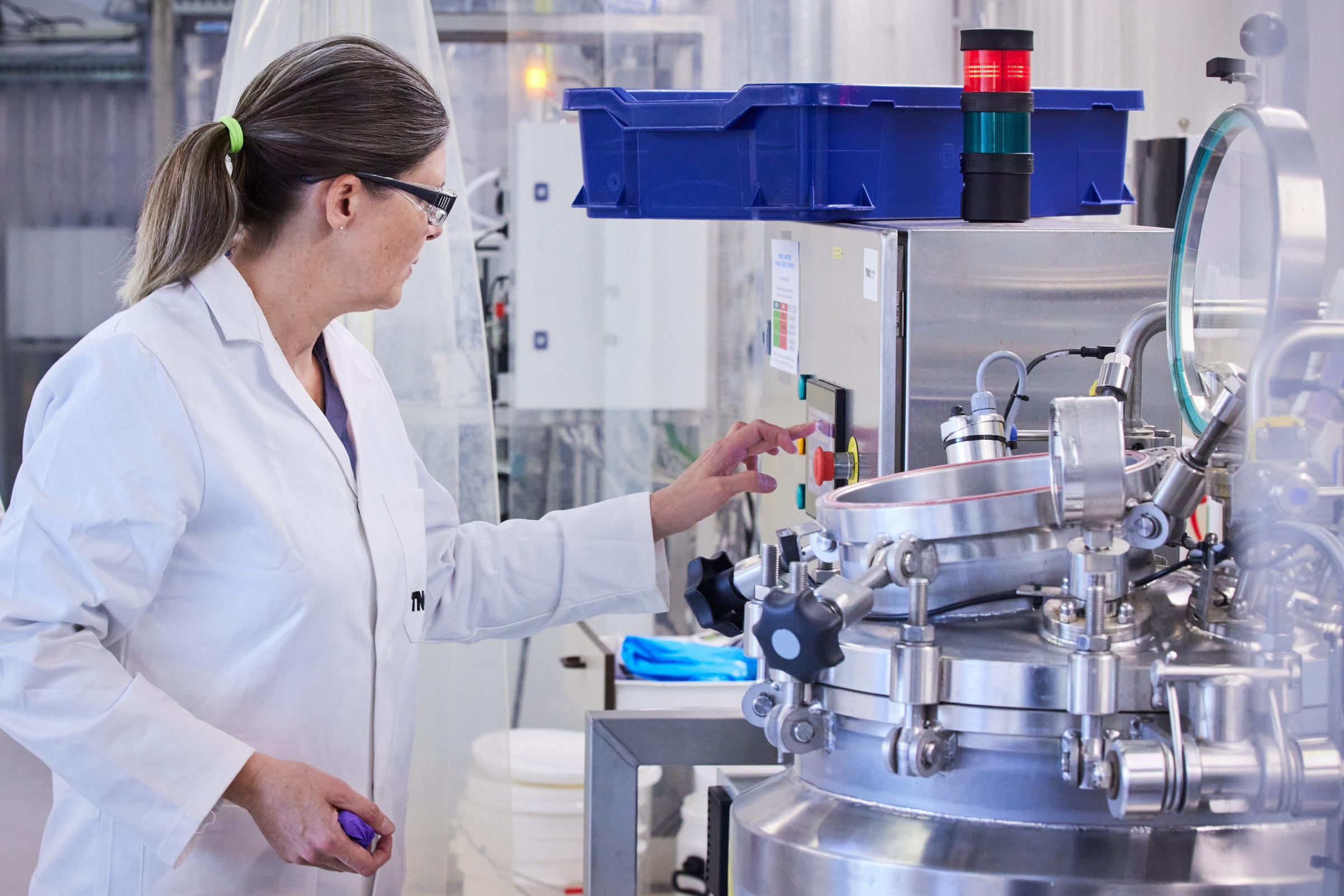
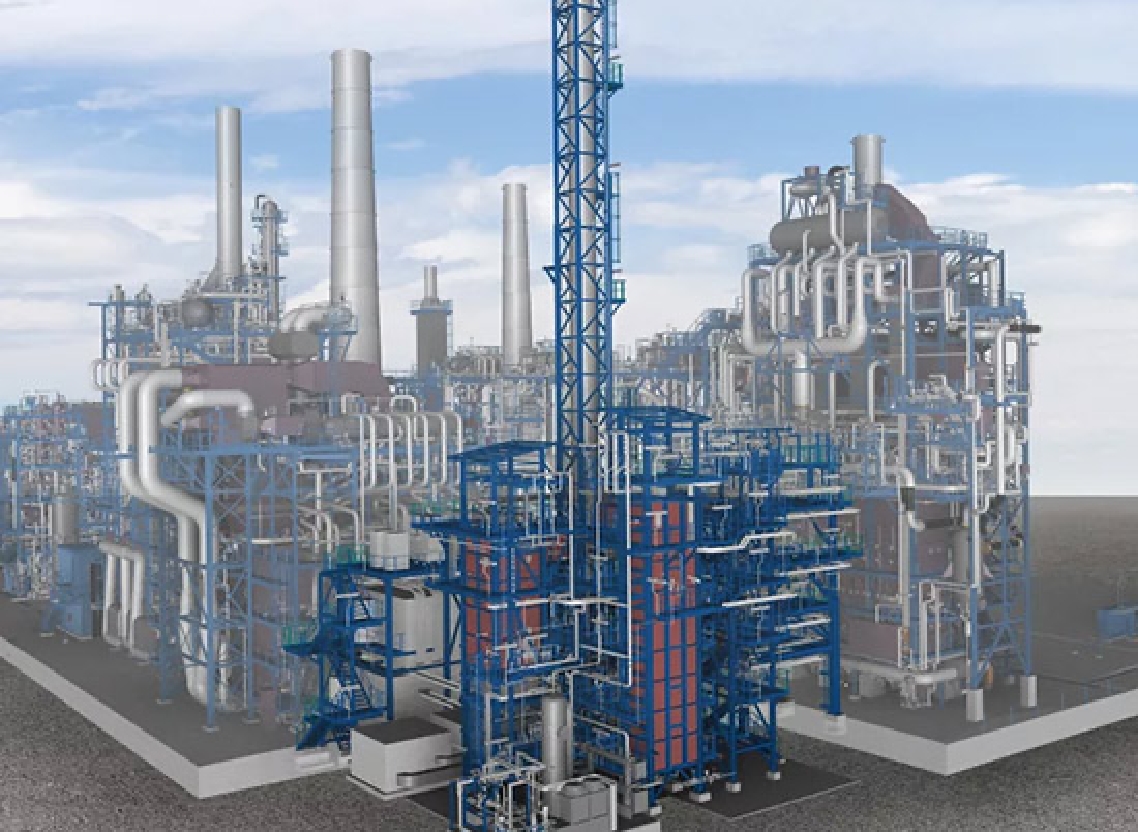
The electrically heated steam cracker furnace
This is a collaboration between member companies BASF and SABIC with engineering firm Linde. Construction of the world’s first demonstration plant for large-scale electrically heated steam cracker furnaces is in full swing. By using electricity from renewable sources instead of natural gas, the new technology has the potential to drastically reduce carbon emissions of one of the most energy-intensive production processes in the chemical industry by at least 90% compared to technologies commonly used today.
Find out more from Global Impact Coalition members BASF and SABIC.
Our Global Impact Topics
All projects start with our 7 Global Impact Topics based on themes that address the industry’s biggest challenges to drive down emissions and promote circularity. We then ideate on new projects aligned with these topic clusters.
- Reduce emissions
with high global
warming potential - Reduce process
carbon emissions - Enable the
energy transition - none
- Increase circularity
of polymers - Utilize alternative
carbon sources - Increase chemical safety
and reduce pollution - Promote E2E
transparency
and certification

